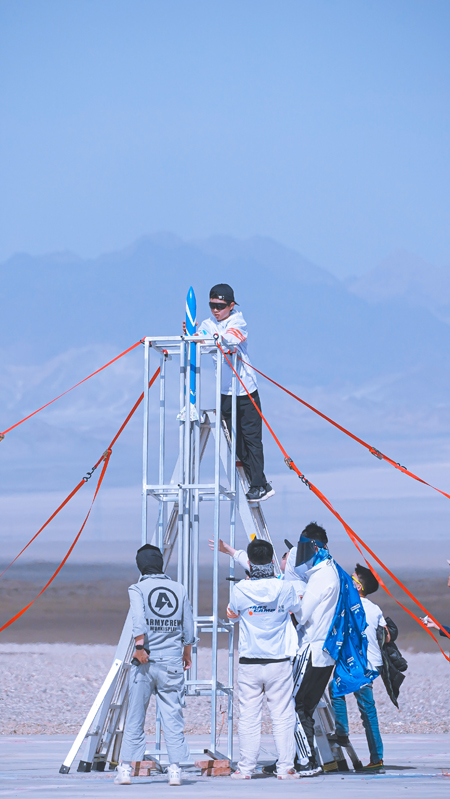Town's fate is truly out of this world


Science project brings location known for its harsh climate in from the cold, Cheng Yuezhu reports.
Legend has it that the town of Lenghu, literally, "Cold Lake", got its name in 1956, when an oil exploration team arrived in the desolate region. A team member washed his hands in a lake and found that the water was freezing cold, hence the name.
Cold weather is one of the key features of the town lying in the city of Mangya, Northwest China's Qinghai province, along with little rain and strong winds that resulted in the formation of ridges of compact sand called yardangs through erosion.
In the latter half of last century, the town prospered from oil mining, which then declined as a result of resource exhaustion. However, science-related projects that have been initiated in recent years are helping the town regain its former glory.
When Gao Junling, founder of Lenghu Lab, first came to the town, he was stunned by the unearthly scenery he found himself in, which, quoting others, he describes as "the place on Earth that most resembles Mars".
An astronomy aficionado, Gao considered the town an ideal location for his Lenghu Lab project, an educational program centered on science popularization. He says the inspiration for the project came from taking his teenage daughter to an open-day event hosted by the National Astronomical Observatories of the Chinese Academy of Sciences.
At the event, his daughter was fascinated by the advanced technology and fell in love with science. After graduating from high school, she chose to study mathematical physics at university.
"I realized that a good education should not only include specific knowledge and prepare students for exams, but also inspire in them a desire and interest in learning," Gao says.
The Mars Camp was established, which can host 72 participants, and simulates the experience of landing on a desolate planet for the first time.




































